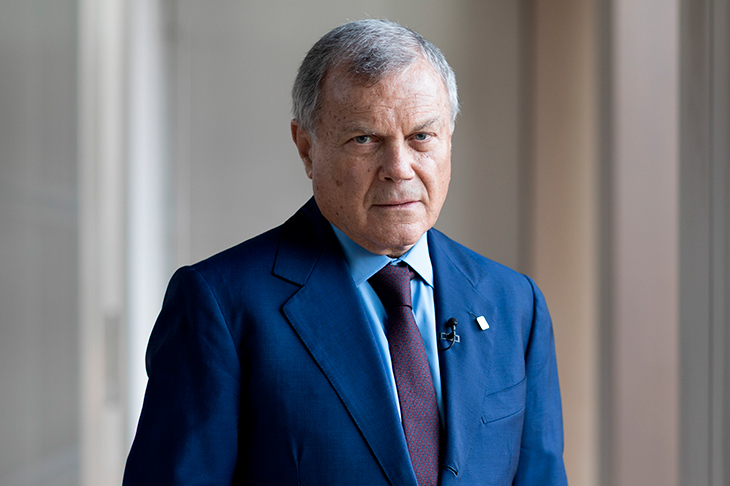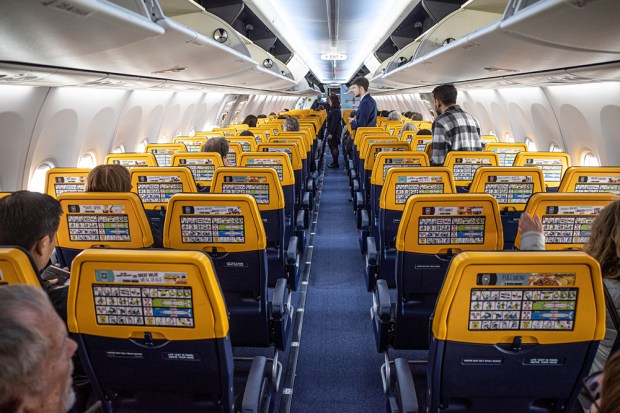The average FTSE 100 chief executive earned £3.5 million last year — 117 times the £29,574 pay of the average full-time UK worker, according to new figures from the Chartered Institute of Personnel and Development. Other sources tell us that at the last count, 54 of those FTSE 100 chiefs were British, 21 held other EU passports, nine were Americans and 16 from the rest of the world.
‘So what?’ I hear you ask. These are global companies competing in a global market for management talent. Has not the average FTSE 100 chief’s pay actually fallen from £5.4 million since 2015, while UK wage rates have been rising this year at their fastest since the financial crisis? And aren’t we still miles behind the US, where the comparable S&P 500 top-dog makes $14.5 million (£11.8 million), at a multiple of 279 times average US earnings, which are only fractionally higher than ours? Maybe the problem of what Theresa May called ‘abuses and excess in the boardroom’, if it’s a real problem, is going away of its own accord.
Or maybe not. UK figures were distorted in recent years by the Ben Stokes-like solo performance of former WPP boss Sir Martin Sorrell, whose take-home peaked at £70 million in 2015. But the bigger picture is not distorted: it tells us the top-to-average ratio has more than doubled over two decades in which the FTSE 100 index has stagnated, while no one has proved that higher executive rewards lead to greater shareholder value. The argument is always presented the other way round: companies that won’t pay the global going rate risk weaker performance from second-rate managers.
Meanwhile, Mrs May’s legacy to the business world she so clearly disliked is a regulation that requires, from 2020, every UK listed company with more than 250 employees to disclose the ratio of its chief executive’s pay to the median pay of its UK employees. No minister has ever suggested what that ratio ought to be: the domestic stratum of FTSE 250 companies, where the average chief earns £1.6 million, offers a relatively modest benchmark of 54 times; Jeremy Corbyn says that for government contractors it should be no more than 20 times, roughly what it would have been in a Soviet steelworks. If that line of analysis is futile, the effect of publication will simply be to spotlight the companies with (for whatever reason) the highest ratios, and they’re the ones that will take the flak.
I’ve been deeply engaged in this debate since it kicked off over the fast-rising salaries of privatised industry bosses in the early 1990s, and I believe it is a real problem — not least because, as Mrs May also said, the perceived unfairness behind it ‘emboldens those on the far left’. But today more than ever we need globally ambitious and aggressive UK companies, run by well motivated world-class talent, much of which will have to be hired from abroad. Distasteful as this suggestion is to me, now would be a good moment for Boris Johnson and his Business Secretary Andrea Leadsom to signal their disinclination to discourage that talent, by putting the new pay-ratio rule on hold.
Chink of light?
If there was the tiniest chink of negotiating light in our Prime Minister’s discussions in Berlin and Biarritz, the key to what might happen next surely lies in the declining state of the German economy and the pressure on Angela Merkel, as she approaches the end of her chancellorship, not to make matters worse. The business confidence index of the Munich-based Ifo thinktank fell in August to its lowest level since November 2012, following a 0.1 per cent GDP contraction in the second quarter; the third quarter looks likely to show another negative outcome. With trade in industrial goods accounting for 40 per cent of GDP, Germany turns out to be peculiarly vulnerable to current global trade tensions and economic headwinds — while its government faces tight budgetary rules that restrict the use of fiscal stimulus.
It’s often said that German business is the most potent continental voice against a no-deal Brexit, but so far that has made no difference at all to the EU’s stance; at two minutes to midnight and with recession looming, maybe now it just might.
To the summit
Radio 4’s new adaption of Proust carried me back not to fictional Balbec but to another Belle Époque resort in the news: Biarritz. I spent the summer of 1973 working there as a clerk in the Barclays branch on Avenue Édouard VII, next to the Windsor tearoom, and lodging with the family of a rather grand French doctor. My daily tasks included counting huge bundles of pesetas smuggled over the border in shopping bags to be exchanged for gold (then at $100 an ounce) by Spaniards who feared a socialist revolution when the ailing General Franco died. It was also my task to obtain funds from home for British tourists who had blown their holiday money in the town’s casino.
I’m pleased to see the bank is still there, though it’s no longer a Barclays, having been sold in 2017 and rebranded ‘Milleis’. I’m only sorry I wasn’t behind the counter this week, because it’s all too easy to imagine our Prime Minister, trouser pockets inside-out, rushing in for cash to buy cocktails for fellow leaders (and Diet Coke for Trump) at the Hôtel du Palais, the sublimely expensive G7 venue around the corner. But having no access to that gathering, I decided to host a summit of my own and — in the spirit of our new government — blast through previous spending limits as I did so.
So to end my summer round of French restaurant tips, I offer you the exquisite Château de Mercuès, high above the river Lot looking towards the city of Cahors. My lunch companion and I ate perfect seafood risotto with a Chenin de Mercuès Blanc Sec; we negotiated what needed to be discussed and afterwards strolled the hotel’s panoramic terraces exchanging wisdom like statesmen. OK, it cost us €60 each, but as Boris would surely agree, sometimes you have to aim high to win.
Got something to add? Join the discussion and comment below.
Get 10 issues for just $10
Subscribe to The Spectator Australia today for the next 10 magazine issues, plus full online access, for just $10.
You might disagree with half of it, but you’ll enjoy reading all of it. Try your first month for free, then just $2 a week for the remainder of your first year.















Comments
Don't miss out
Join the conversation with other Spectator Australia readers. Subscribe to leave a comment.
SUBSCRIBEAlready a subscriber? Log in